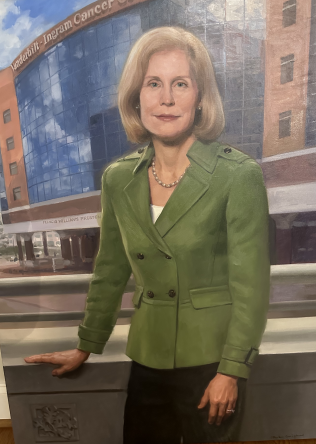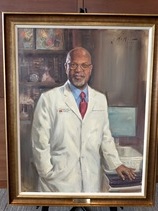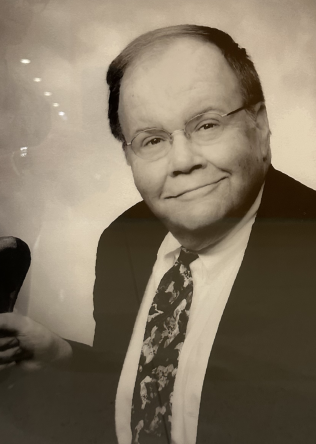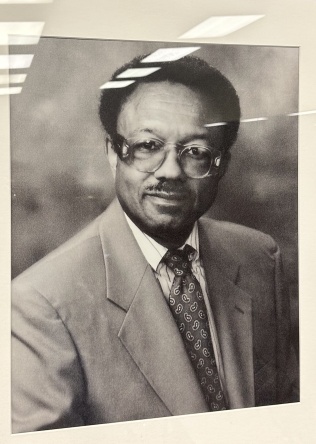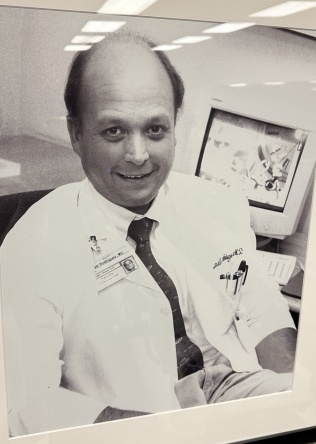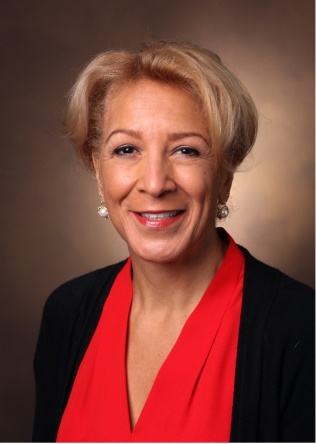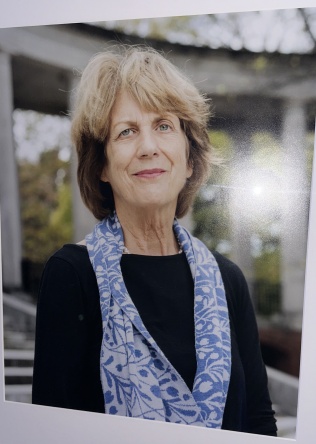Jennifer Pietenpol, PhD
Dr. Pietenpol earned her Ph.D. in Cell Biology from Vanderbilt in 1990, and after a fellowship at Johns Hopkins she returned for a faculty position in 1994, quickly establishing herself by publishing groundbreaking research into the pathophysiology and molecular biology of breast cancer, among other things.
Because of the important discoveries she was continuing to make in the field of cancer research and for numerous other reasons, in 2008 she was the clear choice to become the director of the Vanderbilt-Ingram Cancer Center.
During her 15 years in that role, the Cancer Center flourished, and she launched multiple strategic initiatives advancing personalized cancer medicine, cancer informatics, cancer drug discovery, genome maintenance and cancer survivorship programs.
In 2016, Dr. Pietenpol took on the additional role of Executive Vice President for Research and in 2022 became Chief Scientific and Strategy Officer, overseeing and supporting the basic science programs in clinical departments, centers and institutes, and leading Vanderbilt’s scientific, technological and research strategy and operations.
Her national leadership and recognitions include serving a six-year term on the National Cancer Advisory Board and being elected a fellow of the American Association for the Advancement of Science in 2012, and of the American Association for Cancer Research Academy in 2022. She was recognized at the annual meeting of the American Society of Clinical Oncology (ASCO) with one of its highest honors, the Science of Oncology Award. This award is presented annually to an individual who has made outstanding contributions to basic or translational research in cancer.
Kevin Johnson, MD, MS
Dr. Johnson is an internationally recognized thought leader, developer and evaluator of clinical information technology.
He is a graduate of Johns Hopkins School of Medicine and also served as chief resident in Pediatrics there. He also obtained a Master’s degree in medical informatics from Stanford, and came to Vanderbilt in 2002 as vice chair of Biomedical Informatics. He was appointed chair of that department in 2012 and also served as Chief Informatics Officer for VUMC.
In those roles, Dr. Johnson envisioned a future for biomedical informatics at VUMC and through leadership he made that future a reality. He oversaw the implementation of the electronic health system eStar (Epic), the most significant clinical infrastructure change in the history of the Medical Center.
In addition, as a member of both the LGBTQ and African American communities, he was the second African American chair of a Vanderbilt School of Medicine department.
John E. Fryer, MD (1937-2003)
Dr. Fryer graduated from the Vanderbilt University School of Medicine in 1962, and following his internship at Ohio State and residencies at the Menninger Foundation and the University of Pennsylvania, joined the psychiatry faculty at Philadelphia’s Temple University.
He gave a speech before the annual conference of the American Psychiatric Association in 1972 that played a key role in persuading the APA to remove homosexuality as a diagnosis in the Diagnostic and Statistical Manual of Mental Disorders. Because in 1972 being gay was still classified as a mental illness, Dr. Fryer, despite the fact that he was speaking to a meeting of professional colleagues, made the speech anonymously, with his voice altered and wearing a disguise.
The following year, the APA removed homosexuality as a diagnosis from its manual.
In recognition of his courage and integrity, the APA established the John E. Fryer, M.D. Award in his honor. The award is given to honor a person whose work has contributed to the mental health of sexual minorities. The Pennsylvania Historical and Museum Commission placed a historical marker in his honor, and his longtime home is listed in the Philadelphia Register of Historic Places.
In 2002 he received a Distinguished Alumnus award from Vanderbilt University in recognition of his career and service.
James Puckette Carter, MD, PhD (1933-2014)
Dr. Carter served on the Vanderbilt University School of Medicine faculty from 1965 to 1976. He was the first African American faculty member in the Department of Pediatrics and the first full-time African American on the VUSM faculty.
He was born in Chicago in 1933. He graduated from Northwestern University with a Bachelor of Science degree in chemistry in 1954 and earned an MD from Northwestern University School of Medicine in 1957. Carter earned an MS in parasitology and a PhD in nutrition in 1963 from Columbia University.
After training, he came to VUSM as a staff pediatrician and nutritionist with appointments in pediatrics and biochemistry from 1965-1976. He then moved to Tulane University School of Medicine where he was the inaugural chair of the Department of Nutrition and served the rest of his academic career there.
Michael Rodriguez (1951-2004)
Dr. Rodriguez, a native of Kingsville, Texas, is remembered for being a gifted educator who was highly regarded by his colleagues. He was a pulmonologist who completed his medical training at Vanderbilt as an intern, resident and postdoctoral fellow. After a period in private practice, he returned to the Vanderbilt faculty, where he served until his death in 2004.
He was director of Minority Affairs from 1998-2002. Dr. Rodriguez served as course director of the second-year student Physical Diagnosis course, was a member of the admissions committee, and the academic programs committee. He was the recipient of numerous VUSM teaching awards throughout his career and held a patent for an invention, a pleural catheter.
Dr. Rodriguez had a special combination of enthusiasm, knowledge, patience and sensitivity that made him a role model and one of the school’s most admired educators. A faculty award for “teaching medical students, residents and/or fellows in the clinical setting” is named in his honor.
Stephanie Spottswood, MD, MSPH
Dr. Spottswood received her Bachelor of Arts degree in education from the University of Michigan and her Master of Science in Public Health and MD from the University of North Carolina. She completed residency in diagnostic radiology at VUMC in 1991 and fellowship training in pediatric radiology at the Medical College of Virginia in 1992. She studied pediatric nuclear medicine at the Children’s National Medical Center and completed her nuclear medicine fellowship training at the Medical College of Virginia in 1993.
Following academic and private practice careers in Virginia, Dr. Spottswood came to Vanderbilt in 2005 as chief of pediatric nuclear medicine, where she participated in the design of the lodine-131 MIBG radiotherapy space for treating children with intractable neuroblastoma, one of few such treatment facilities in the United States.
She was promoted to professor of Radiology and of Pediatrics in 2012. In 2013, Dr. Spottswood was appointed associate vice-chair for Diversity, Equity and Inclusion for the Vanderbilt Department of Radiology. She is currently a professor of Radiology and Radiological Sciences, Emerita.
Marie Griffin, MD, MPH
Dr. Griffin is a professor of Health Policy, Emerita, and an internationally recognized epidemiologist and scholar. Her research focus has been safety and effectiveness of drugs and vaccines and the burden of vaccine-preventable diseases.
She has more than 300 peer-reviewed publications and has made seminal contributions to the vaccine science and public health literature. Her research has impacted policy and advanced some of the most important challenges and controversies in the field of vaccines and public health over the last several decades. Her work was the first to quantify the risks of influenza for pregnant women and was pivotal in the universal recommendation of influenza vaccine for all individuals in the United States over 6 months of age.
Dr. Griffin joined the faculty at Vanderbilt as an assistant professor in 1986 and advanced to professor of Health Policy and Medicine. She was one of the first women to choose the tenure track in the Medical Center and soon became a role model for other women interested in becoming research scientists. She co-founded the Master of Public Health program, which admitted its first students in 1996, and served in many roles in that program before becoming the director in 2014.
She was one of the key figures in the creation of the David Satcher Public Health Scholars Program, which provides tuition support and the opportunity to conduct research at the Satcher Health Leadership Institute to students from underrepresented backgrounds.
Levi Watkins Jr., MD (1944–2015)
Dr. Watkins was a renowned cardiac surgeon, champion of racial equality and diversity, and the first African American to be admitted to (1966) and graduate from (1970) Vanderbilt University School of Medicine.
He went to Johns Hopkins for his surgical internship and was that hospital’s first African American chief resident in cardiac surgery. He also conducted research at Harvard Medical School into the treatment of congestive heart failure.
After completing his residency, Dr. Watkins joined the full-time faculty in cardiac surgery at Johns Hopkins. In February 1980, he performed the world’s first implantation of the automatic implantable defibrillator in a patient. He remained on the faculty at Hopkins until his retirement in 2013.
In 2008, Dr. Watkins was named Vanderbilt University’s Distinguished Alumnus. He was previously honored with the Vanderbilt Medal of Honor for outstanding medical school alumnus in 1998. He served on the University’s Board of Trust from 2003 to 2013 and is remembered and honored each year at Vanderbilt by the Levi Watkins Jr., M.D., Lecture on Diversity in Medical Education.
Bedford Waters, MD (1948-2019)
Dr. Waters received a Bachelor of Science degree in chemistry from Vanderbilt University in 1970 and became the second African American to graduate from VUSM.
He served his residency in San Diego, California, and became the chief resident in urology at the Harvard Program in Urology (Longwood Area) and served on the faculties of the University of Illinois and then the Stritch School of Medicine at Loyola University Chicago. He practiced in Chicago for more than 20 years before returning to his hometown of Knoxville, Tennessee, in 2001 to help create the urology residency at University of Tennessee Medical Center, where he also served as both chairman and program director.
He was an expert in the treatment of urologic cancers, focusing on renal cancer, testis cancer, bladder cancer and urinary diversion, and served as a leader of many regional and national organizations. He was awarded the Lifetime Achievement Award from the American Urological Association for advancing urologic oncology and inspiring diversity in the field of urology.
In December 2018, VUSM honored Dr. Waters as one of six pioneers for his historic contributions to education, science and medicine during a formal portrait unveiling at Langford Auditorium.
